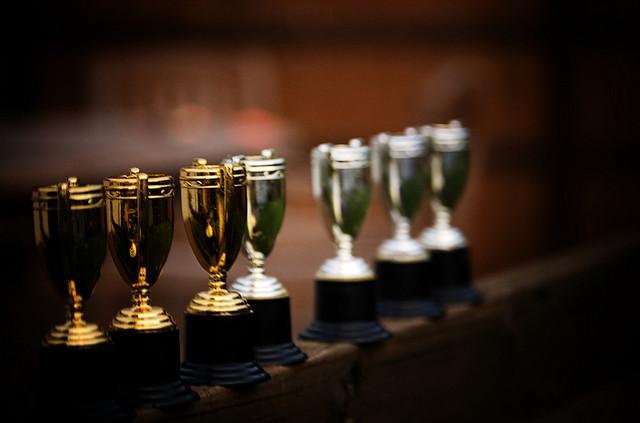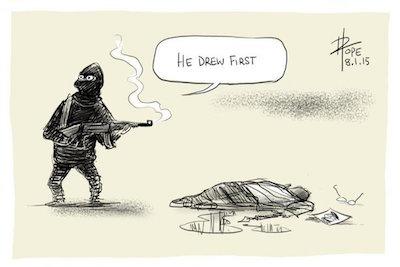‘Monetary policy is 98 per cent talk and 2 per cent action.’
So even central banking—that combination of the dismal science and monetary madness—is virtually voodoo, driven most of the time by smoke signals and slight of hands and diatribes and desperate debating points.
No wonder the Fed thinks jawboning is a major policy weapon.
Ladies and Gentlemen, it ain’t just about the facts and the logic, the guns and the money.
It’s about the story. How well it’s told and sold. How much is believed.
The doctor who scribed better than most writers, Oliver Sacks, captured it this way: ‘I suspect that a feeling for stories, for narrative, is a universal human disposition going along with our powers of language.’
The idea the human brain is getting support from neuroscience, psychology and evolutionary sciences. The novelists are being joined in the story game by everyone—from monetary magicians to military minders.
Just find the truth in the fiction and sift the significance from the signals.
If Bernanke thinks his game of soft-money-to-hard-currency is 98% talk and 2% action, maybe the hard-power-soft-power world of strategy and international relations also runs on that ratio.
All of which brings us to an annual ritual, the Madeleine awards for the use of symbol, stunt, prop, gesture or jest in international affairs.
The prize is named after the former US Secretary of State and Ambassador to the UN, Madeleine Albright, honouring her penchant for sending diplomatic messages via her lapel brooches.
Starting with the minor awards, here is the envelope for the OOPS!, celebrating an OOPS!-I-wish-I-hadn’t-moment. The spirit of the OOPS! was elegantly expressed long ago by Boris Johnson after he was sacked as a shadow cabinet minister: ‘There are no disasters, only opportunities. And, indeed, opportunities for fresh disasters.’
The OOPS! usually goes to a blooper or blunder (the political definition of a blunder being someone inadvertently blurting the truth).
A certain amount of Oz provincial pride has marked this award. For the last two years it was easily won by Tony Abbott. He triumphed with his 2013 election campaign vow that he wasn’t ‘the suppository of all wisdom!’
Then he fronted up for a double OOPS! by introducing the term ‘shirtfront’ to international diplomacy. In Australian Rules football a shirtfront is when a player charges at an opponent’s chest and crashes shoulder-first into their shirt. In talking about Russia’s President, the Oz PM announced: ‘Look, I’m going to shirtfront Mr Putin. You bet you are—you bet I am.’
Putin mightn’t know much about Australian Rules, but he understands the use of gesture, gibe and threat on the international stage. Putin’s Madeleine-worthy response while attending the G20 summit in Brisbane was to have the Russian navy sailing around off Queensland—shirtfront versus ships!
Abbott went close to a third win by conferring an Oz knighthood on the Queen’s consort, Prince Philip. But that knightmare already has a prized place in the nightmare that overtook Australia’s 28th Prime Minister.
The judges were tempted to broaden our definition of international affairs and give the OOPS! to Volkswagen for a deeply disastrous and amazingly dumb bit of engineering skulduggery. In the end, though, the call was easy.
One man stood up and by his own read-my-rants demanded the OOPS! This is for you, Donald Trump. The Donald has broadened our understanding of the prize. Rather than blunder or blooper, he has perfected the Reverse OOPS! The more outrageous he gets, the stronger his candidacy.
The Reverse OOPS! follows Jack Shafer’s view that this presidential campaign teaches that truth matters in politics less than any of us ever believed: ‘the abundance of liars and bullshitters have driven us to a “post-truth era” in politics.’ Roll on the primaries to put this to the vote.
Now for a new award. When creating the Madeleines we mooted a category called the George Orwell prize for double think and chilling euphemism.
The Orwell got cut because, on reflection, it seemed the prize would naturally go each year to North Korea. In keeping with the temper of the times, we have cast off this caution as needless restraint and useless good taste. Here is the first George Orwell prize. Step forward Thailand’s military junta.
The junta euphemism that helped win the Orwell is ‘attitude adjustment’. Being shoved in a prison cell with a bag over your head is attitude adjustment. The double think is most evident in the regime’s use of lèse majesté law.
The nasty farce of lèse majesté means the junta has to respond to a private complaint and investigate the US ambassador to Bangkok for insulting the King. The ambassador’s offence? A speech criticising long prison sentences for those convicted of criticizing the King.
As Joshua Kurlantzick commented, the junta ‘cannot ignore lèse majesté allegations even if those claims appear pointless or potentially detrimental to Thailand’s strategic interests. In other words, an arch-royalist government led by a military man cannot even dictate how the lèse majesté law is utilized, a sign of Thailand’s increasingly out of control politics.’
Give the junta an Orwell.
Finally, in the minor awards, The Diana Directive on the Utility and Force of Photographs and Images. The title comes via Tony Blair who cited the Princess of Wales: ‘As Diana used to say, the picture is what counts.’ See Blair’s account of Diana on the utility and force of pics here.
The combination of flippancy and serious point in the Diana means it can applaud all the cartoonists around the world who, a year ago this month, took up the cry, ‘Je suis Charlie!’
The massacre in Paris of the journalists and cartoonists at Charlie Hebdo was a murderous assault by fanatics, an attempt to kill jokes, puns, slang, and a distinctly French understanding of satire.
Bullets were fired at that most subversive of images—the cartoon.
A magazine known for its joyous bad taste was drenched in the blood of its staff. For an agonising moment, a rag of a mag became, instead, a symbol of the right to laugh as an expression of freedom and civilisation. The Diana goes to Charlie and all cartoonists, as expressed from Canberra by David Pope’s magnificent response.
The next column will rate the contestants and announce the winner of the seventh Madeleine Award.

